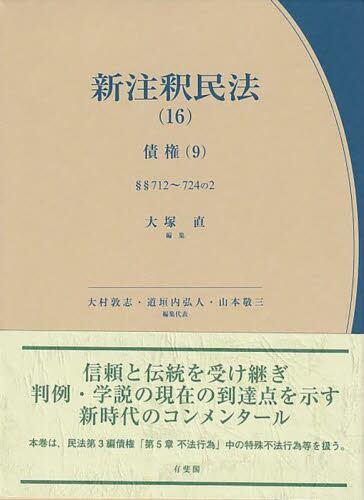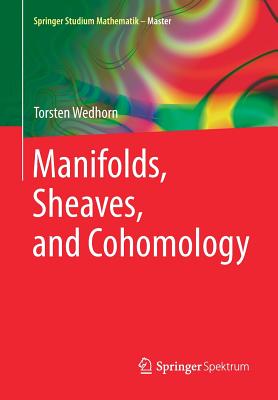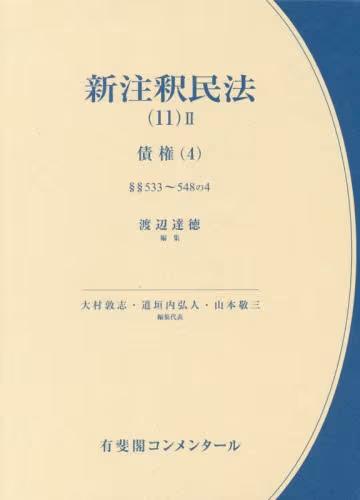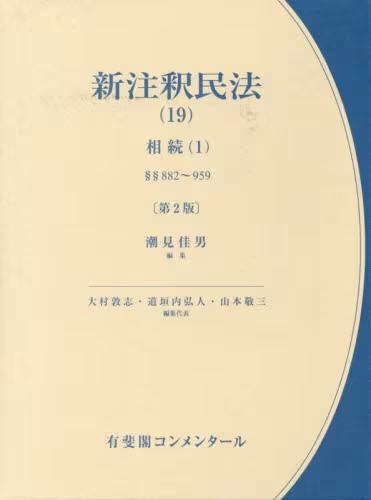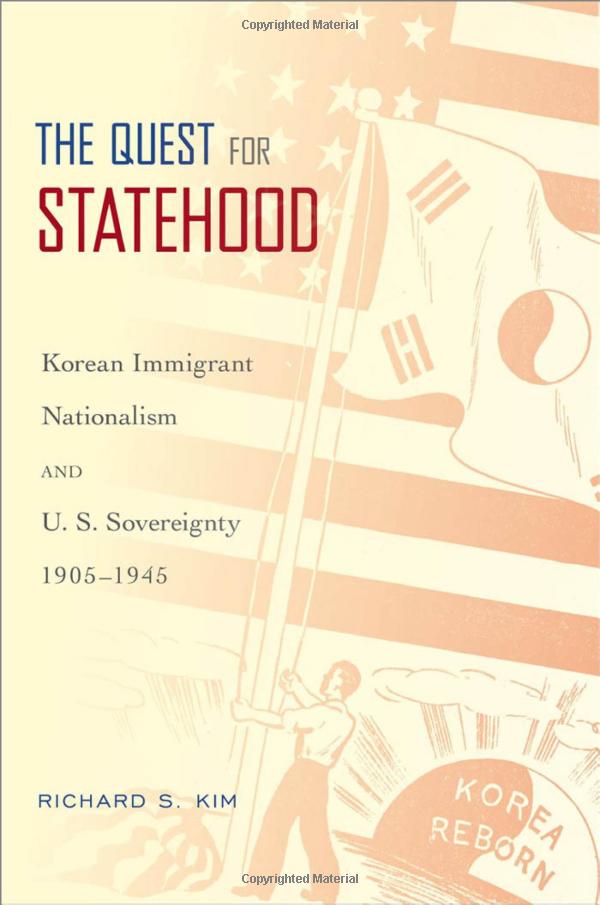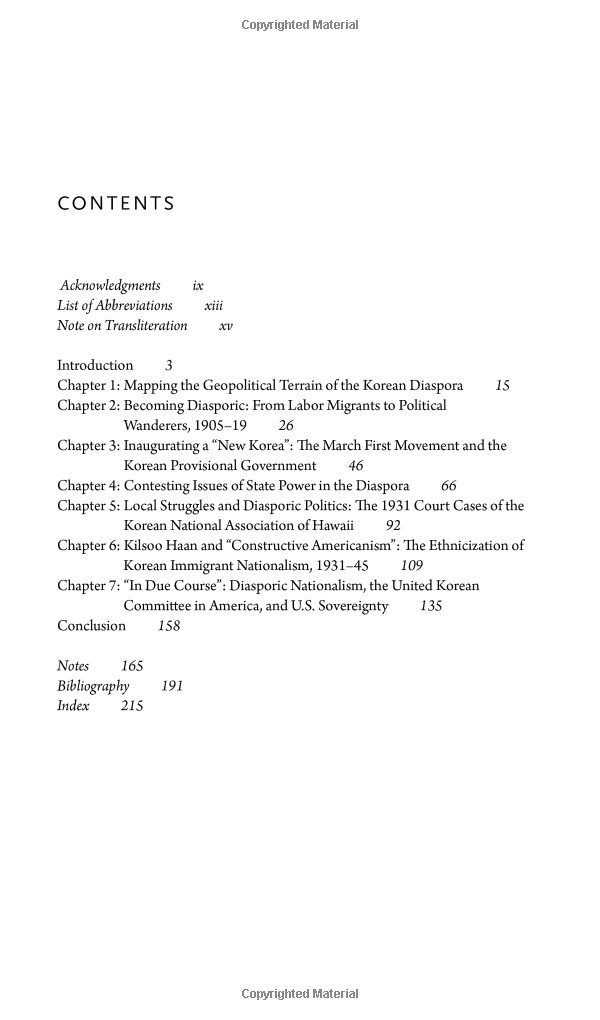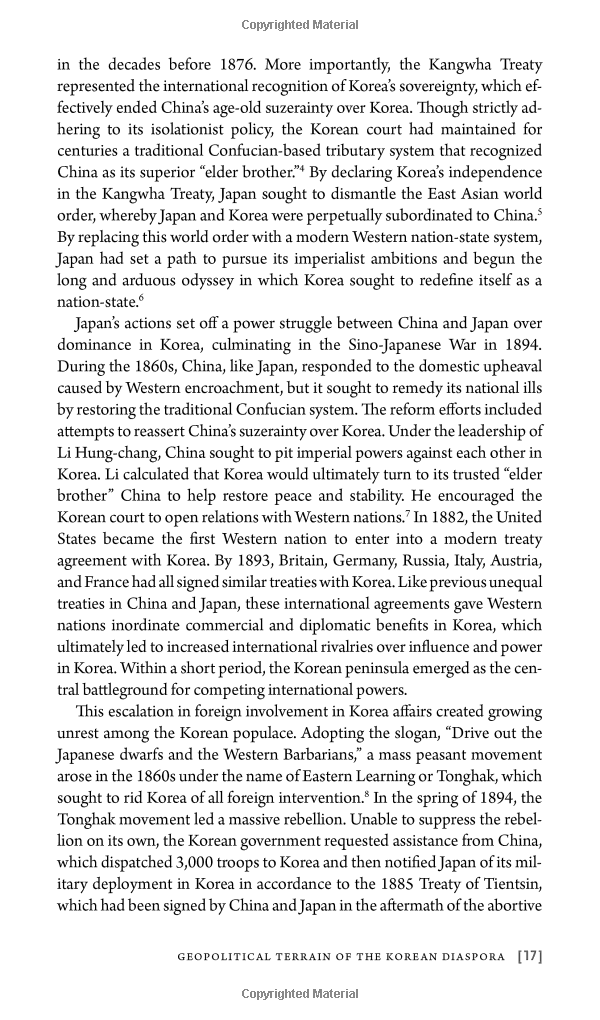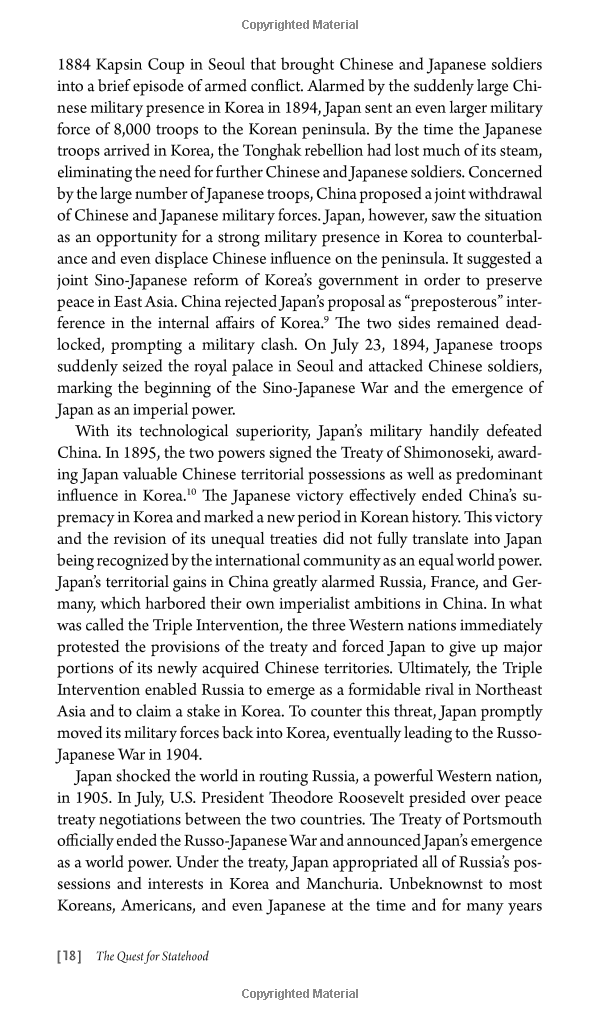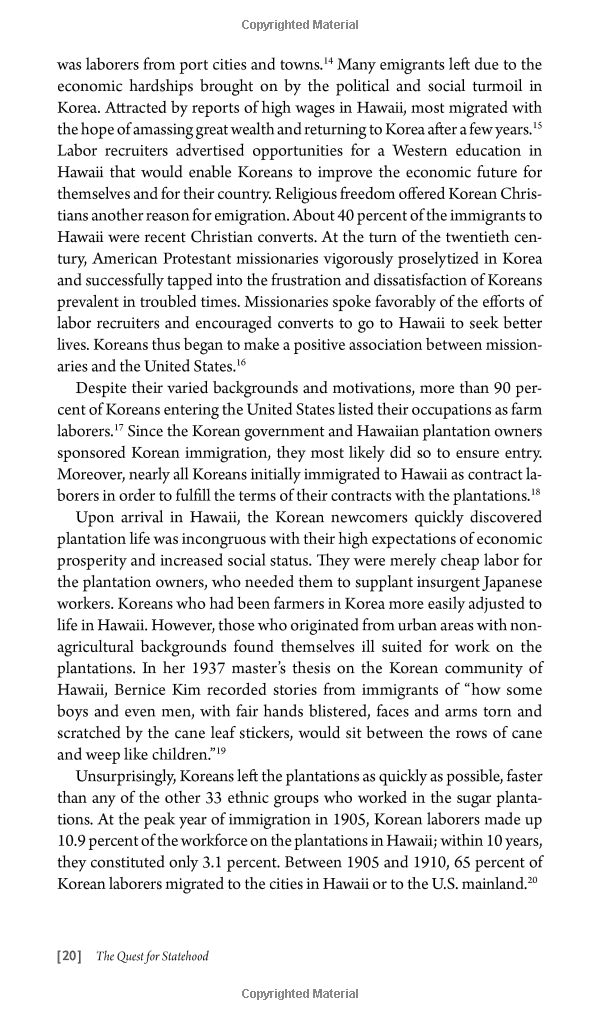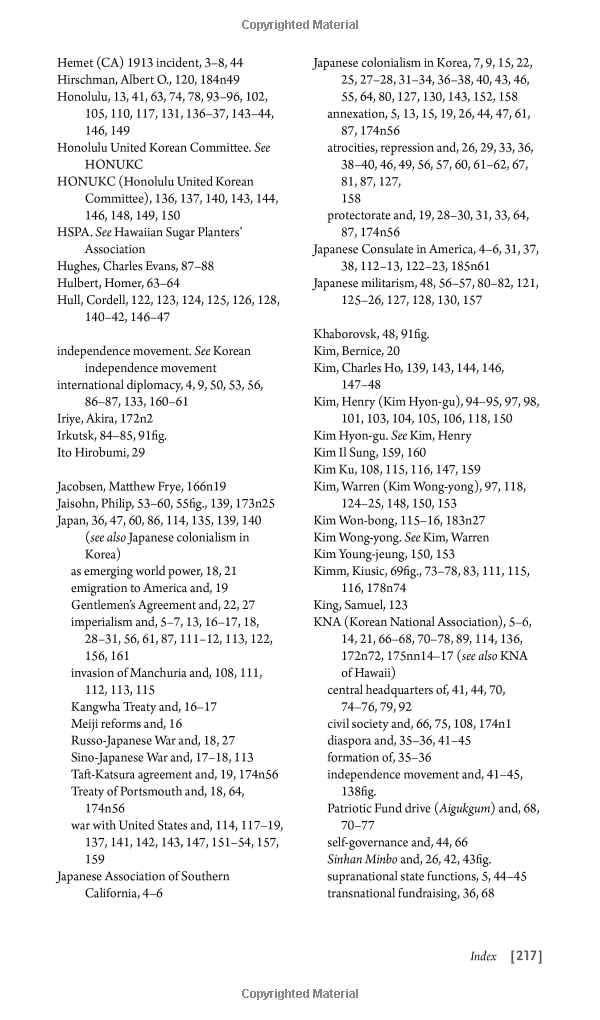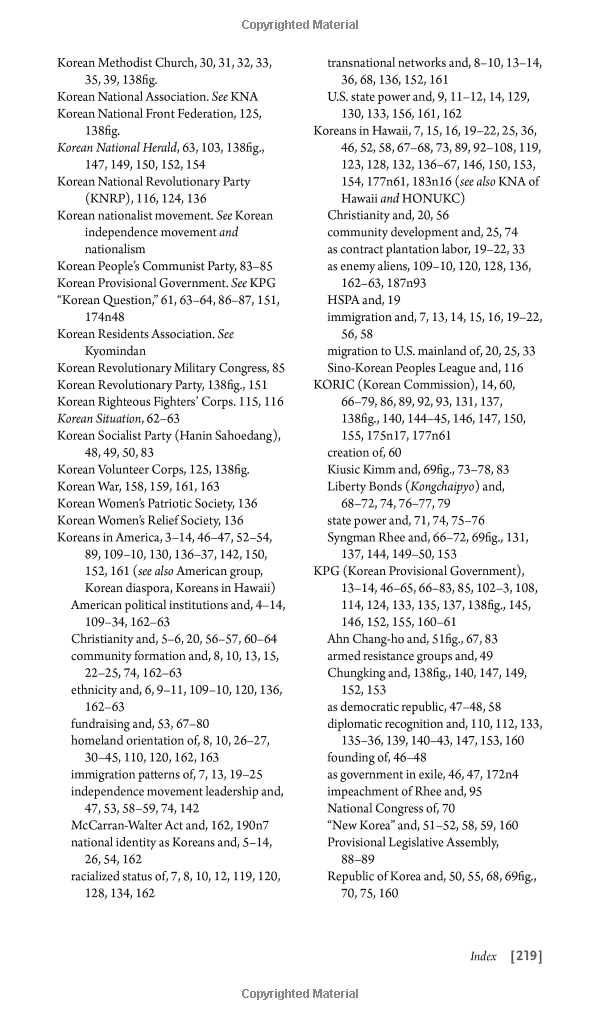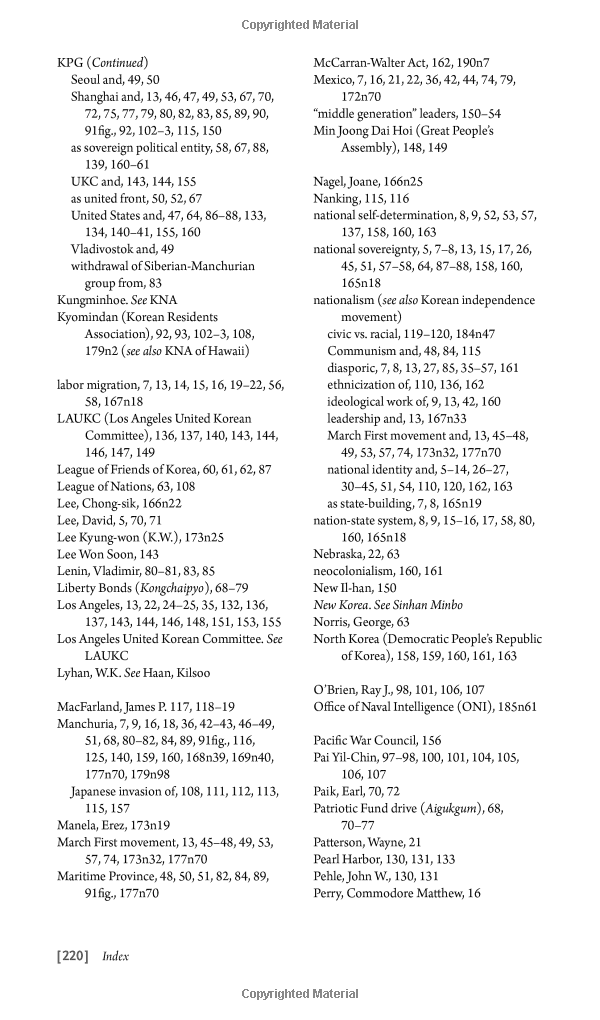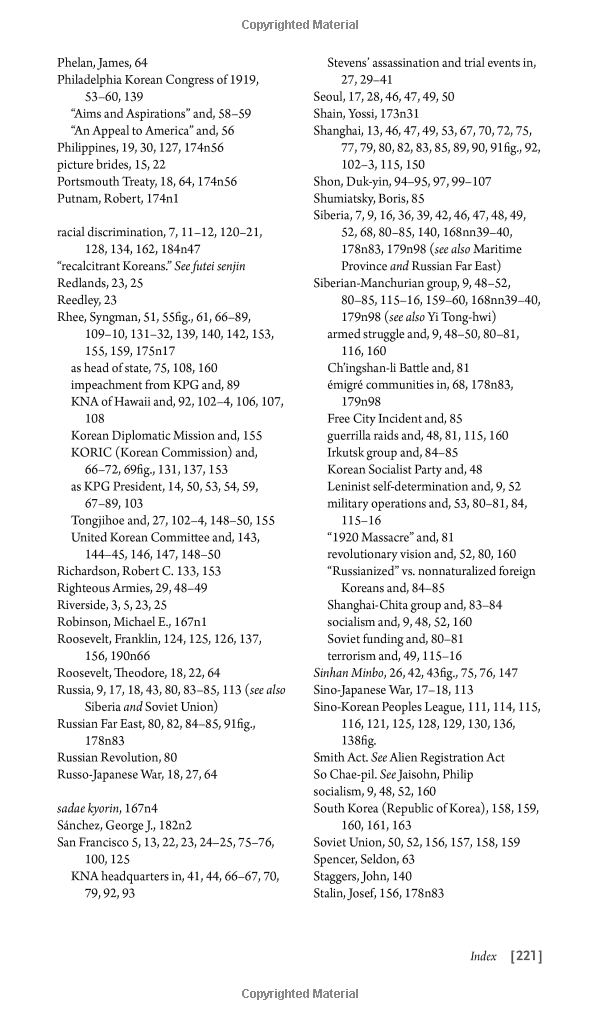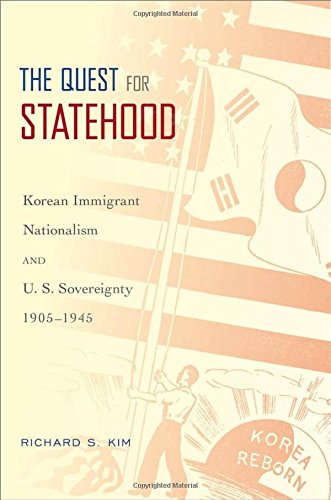
The Quest for Statehood:Korean Immigrant Nationalism and U.S. Sovereignty, 1905-1945
建国任务:韩国移民的民族主义和美国的主权,1905年至1946年
急诊医学售 价:
¥
295.00
发货周期:预计5-7周发货
作 者
出 版 社
出版时间
2011年10月28日
装 帧
平装
页 码
256
开 本
235x156mm
语 种
英文
综合评分
暂无评分
- 图书详情
- 目次
- 买家须知
- 书评(0)
- 权威书评(0)
图书简介
Korean diasporic nationalism in the years between 1905 and 1945 played a foundational role in the emergence of the two separate Koreas after 1945 that both exist to this day. Koreans in the United States were a constitutive part of this historical trajectory. The Quest for Statehood traces the development of Korean immigrant nationalism within the context of the Korean independence movement which sought to liberate Korea from Japanese colonization. Regarding Japanese rule as illegitimate, Koreans in and out of the Korean peninsula viewed themselves as stateless peoples who wanted to establish a sovereign state of their own. Given Japanese repression in Korea, independence activities had to be carried out from abroad, creating conditions for the emergence of a diasporic nationalism. Situated at the nexus of geopolitical relations involving Korea, Japan, and the United States, Koreans in America came to play a vital role in the state-building project of Korean diasporic nationalism. The Quest for Statehood explores the consequences and implications of Korean diasporic identifications with the homeland in a U.S. setting. Due to the constraints of diasporic state-building, U.S.-based Koreans increasingly came to rely on the power of the United States to act as a sovereign state to pursue the national interests of Koreans throughout the diaspora. This study contends this strategic reliance on U.S. state power reflected the development of an ethnic consciousness among Korean immigrants in America. The efforts of Korean immigrants to fight for the independence of their homeland necessitated their participation in civic and political activities in the United States that established them as an American ethnic group. Korean nationalism thus paradoxically led to Korean immigrant incorporation into American political structures whereby ethnicity served as an organizational resource for making nationalist claims in the U.S. political arena. Ultimately, homeland nationalism was central to the assimilation of Korean immigrants as American ethnics
馆藏图书馆
Yale University Library
Princeton University Library
本书暂无推荐
本书暂无推荐




